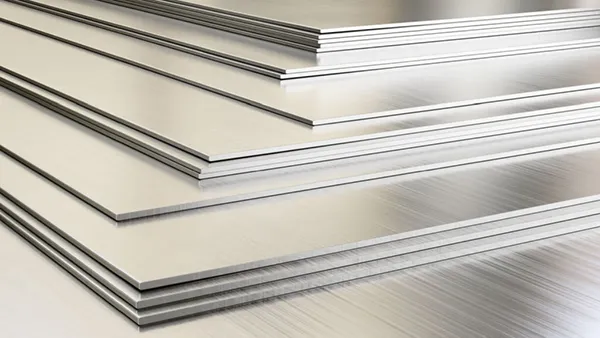6061 aluminum is a common aluminum alloy material whose alloy components include aluminum, magnesium, and silicon, and has excellent mechanical properties and processing characteristics. At present, more than 70% of aluminum extrusions in the world are produced with 6 series alloys, and the mass fraction of its components ranges from 0.3% to 1.3% Si and 0.35% to 1.4% Mg. Most 6000 series aluminum plates are thick plates in this temper.

The most common tempers of 6061 aluminum are O, T4, T6, and T651. Yongsheng Aluminum is a professional aluminum manufacturer producing 6061. Our 6061 aluminum has good gloss, good corrosion resistance, strength, and excellent processing performance. This article will give you a comprehensive disclosure of all the secrets of 6061.
6061 Aluminum Properties
6061 aluminum chemical composition: proportion of elements
| Si | Fe | Cu | Mn | Mg | Gr | Zn | Ti | Al | Other(Single) | Other(Total) |
| 0.4-0.8 | 0.7 | 0.15-0.4 | 0.15 | 0.8-1.2 | 0.04-0.35 | 0.25 | 0.15 | Remain | 0.05 | 0.15 |
6061 aluminum mechanical properties: 6061 aluminum tensile strength, yield strength, elongation and Brinell hardness.
| Tensile Strength | ≥180MPa |
| Yield Strength | ≥110MPa |
| Elongation | ≥14% |
| Brinell Hardness | 95-100 |
What Is Aluminum 6061 astm Standard
The ASTM standard for 6061 aluminum is that the material meets ASTM (American Society for Testing and Materials) standards, including ASTM B221 for extruded shapes and ASTM B209 for rolled plates and sheets. The standard has specific mechanical properties, chemical composition, and physical characteristics.

6061 aluminum processed according to ASTM standards has a range of mechanical properties:
- Tensile strength: 310 – 430 MPa (45,000 – 62,000 psi)
- Yield strength: 275 – 380 MPa (40,000 – 55,000 psi)
- Elongation: 12 – 17%
- Hardness: 95 – 150 Brinell hardness
- Modulus of elasticity: 68.9 GPa (10,000 ksi)
The two main ASTM standards related to 6061 aluminum are ASTM B209 and ASTM B221.
ASTM B209 is suitable for rolled plates and sheets, which have a flatter and smoother surface suitable for welding or machining.
ASTM B221 is suitable for extruded shapes.
Temperature Effect On 6061 t6 Aluminum
Temperature can significantly affect the properties of 6061-T6 aluminum alloy, especially its strength and ductility.
Above 200°C, 6061 t6 alloy may begin to soften. Mechanical properties decrease as temperature increases. Strength also decreases significantly. Long-term exposure to high temperatures can relieve stresses, thereby reducing residual stresses caused by machining or manufacturing.
At lower temperatures, the strength of 6061-T6 aluminum increases. It retains its mechanical properties well in cold environments. At the same time, ductility may decrease, making the material more susceptible to brittle fracture under impact conditions.
Like most metals, 6061 aluminum expands when heated and contracts when cooled. High temperatures also affect the alloy’s fatigue resistance, potentially leading to failure under cyclic loading conditions.
Young’s Modulus Of 6061 t6 Aluminum
The Young’s modulus for 6061-T6 aluminum is typically around 68.9 GPa. Also known as the modulus of elasticity, Young’s modulus is a measure of a material’s stiffness and resistance to elastic deformation under load.
The higher the Young’s modulus, the stiffer the material; the lower the Young’s modulus, the softer the material. However, Young’s modulus varies slightly with temperature but generally remains consistent over the typical operating range of aluminum alloys.


